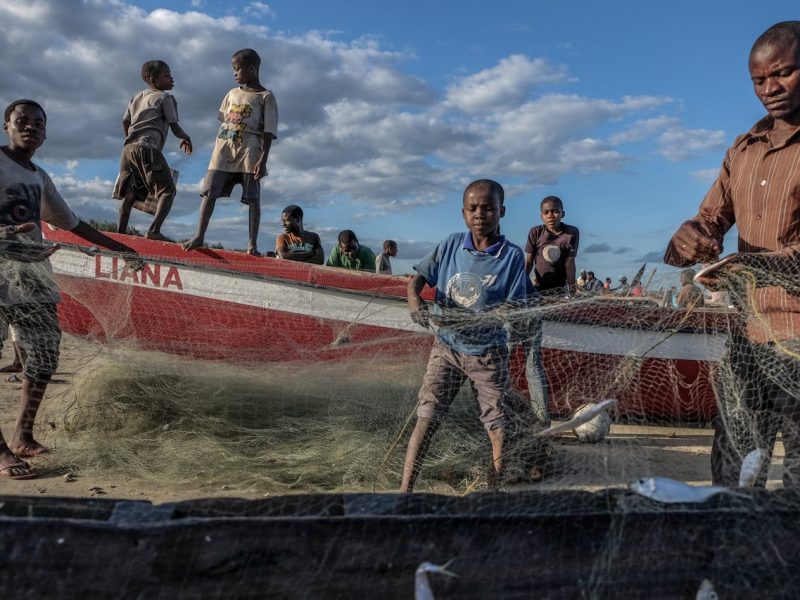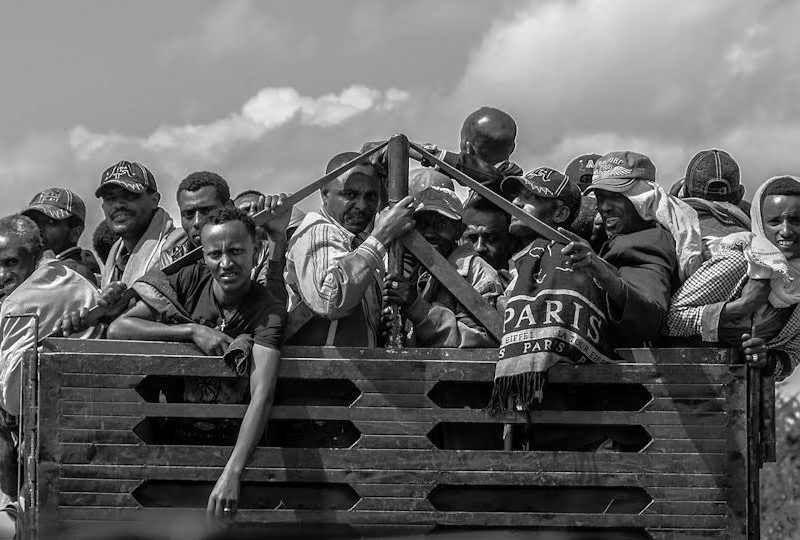[…] It is true that women are excluded from decision-making processes in the Church: not excluded, but the presence of women is very weak there, in decision-making processes. We must move forward. For example – truly I see no difficulty – I believe that in the Pontifical Council for Justice and Peace the secretariat is managed by a woman religious. Another was proposed and I appointed her but she preferred not to accept as she had to go elsewhere to do other work in her congregation. We must move forward, because for many aspects of decision-making processes ordination is not necessary. It is not necessary. In the reform of the Apostolic Constitution Pastor Bonus, speaking of Dicasteries, when there is no jurisdiction deriving from ordination – that is, pastoral jurisdiction – it is not written that it can be a woman, I don’t know about a head of a Dicastery, but… For example, for migrants: a woman could go to the Dicastery for Migrants. And when it is necessary – now that migrants fall under the jurisdiction of a Dicastery, it will be for the Prefect to give this permission. But ordinarily, in the execution of a decision-making process, this can be done. For me the process leading to decisions is very important: not only the execution, but also the development, and therefore that women, whether consecrated or lay, become part of the reflection process and part of the discussion. Because women look at life through their own eyes and we men are not able to look at life in this way. The way of viewing a problem, of seeing anything, is different for a woman compared to a man. They must be complementary, and in consultations it is important that there are women. […]
[Now the Pope answers a part of the question that was written but not read]
Requests for money in our local Churches. The problem of money is a very serious problem, both in consecrated life and in the diocesan Church. We must never forget that the devil enters “through our pockets”: the pockets of the bishop and the pockets of the congregation. This touches on the problem of poverty, which I will speak about later. But greed for money is the first step towards corruption in a parish, in a diocese, in a congregation of consecrated life: it is the first step. I think that in this regard payment for the sacraments has taken place. Look, if someone asks you for this [payment], then report the incident. Salvation is free. God sent us this freely; salvation is like an “overflowing of gratuitousness”. Salvation doesn’t cost anything; sacraments don’t cost anything. Is this clear? I know, I have seen this kind of corruption in my life. I remember one case, when I had just been appointed bishop. I had the poorest area of Buenos Aires, divided into four vicariates. There were many migrants from American countries there, and often when they came to get married the parish priests would say, “These people have no baptism certificate”. And when they asked for them from their countries they were told – and I remember one case – “Yes, but first send a hundred dollars and then I will send it to you”. […]
Yes. All women religious, all consecrated women should live mystically, because yours is a marriage: your is a vocation of maternity; it is a vocation of acting on behalf of Mother Church and of Mother Mary. But those who tell you this, they think that being a mystic is being a mummy, always praying like that… No, no. You have to pray and to work according to your own charism, and when the charism leads you to work with refugees, to work with the poor, you should do it, and they will call you “communist”; that’s the least of what they will say about you. But you should do it. Because the charism leads you to this. In Argentina, I remember a sister, she was provincial of her congregation. A good woman, and she’s still working… she’s nearly my age, yes. And she works against those who traffic youngsters, who traffic people. I remember, under the military government in Argentina, they wanted to put her in jail, putting pressure on the Archbishop, putting pressure on the Provincial Superior, before she became provincial, “because this woman is a communist.” And this woman saved so many girls, so many girls! And yes, that’s the Cross. What did they say about Jesus? That he was Beelzebub, that he had the power of Beelzebub. Calumny: be prepared for it. If you do good, with prayer, before God, taking on all the consequences of your charism and you go forward, prepare yourselves for defamation and calumny, because the Lord chose this way for himself!




